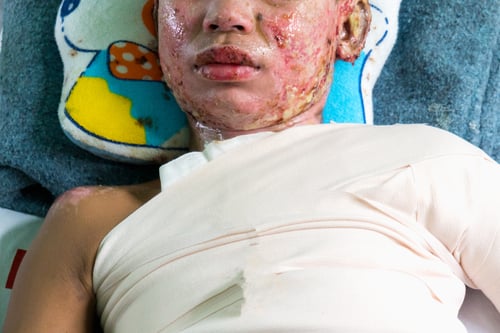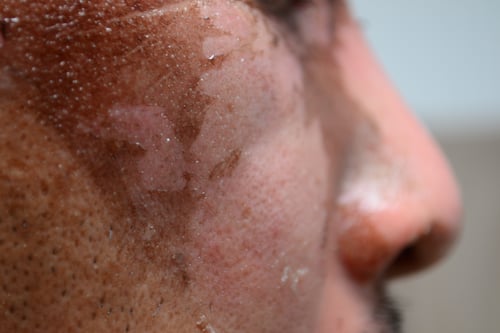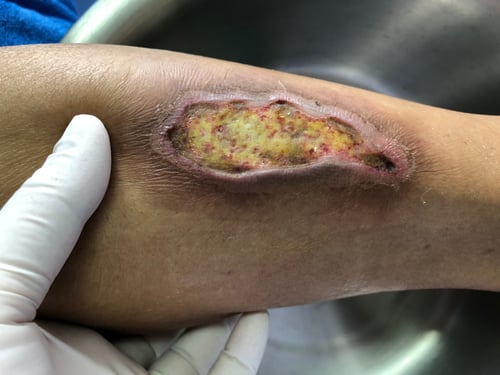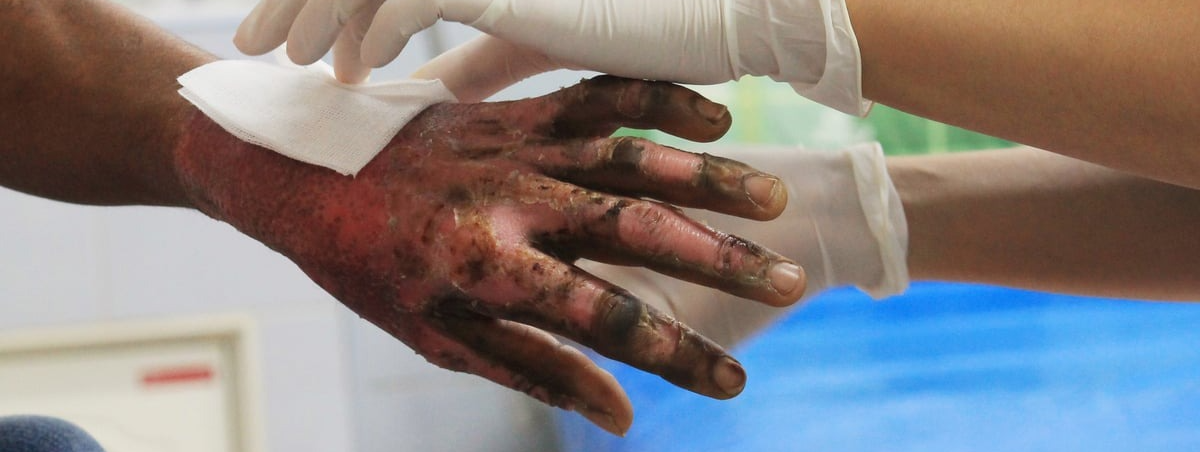Reconstructive Procedures: Burns Scars and Complex Wound Management
Burns, Scars And Complex Wound Management
BURNS

Can surgery treat burns?
What other treatments do burn injuries require?
What should I do if I sustain a burn?
SCARS

How can plastic surgeons help with bad scars?
Conservative management for scars includes the use of steroid injections, pressure therapy and topical scar treatment. Beyond these, advanced laser therapies can help reduce the appearance of blood vessels or pigment while resurfacing the scar.
In more severe cases or with scars that do not respond to conservative or laser treatment, surgery and/or radiotherapy can be considered. Utilizing plastic surgical techniques and meticulous suturing, the plastic surgeon can remove the scar and shift tissue from neighbouring areas to reduce the risk of recurrence.
Can bad scarring recur?
COMPLEX WOUND MANAGEMENT

The treatment plan for complex wounds can include modern dressing materials including negative pressure wound therapy, revascularization with the aid of an interventional vascular specialist, and long-term antibiotic therapy for chronic wound infections. Ultimately, surgery for these wounds would often require advanced reconstructive techniques, ranging from grafts to flaps and even reconstructive microsurgery. The ultimate goal is to return the best quality of life possible to the patient in the shortest space of time.
For more information on specific areas of reconstruction, do refer to the different reconstructive surgery subheadings. A consultation with one of our experienced plastic surgeons can help with assessment of your wound and formulating an appropriate treatment plan.
Why choose Polaris Plastic Surgery?
2. Chang, D. W., Suami, H. & Skoracki, R. A Prospective Analysis of 100 Consecutive Lymphovenous Bypass Cases for Treatment of Extremity Lymphedema. Plastic and Reconstructive Surgery 132, 1305–1314 (2013).
3. Garza, R., Ooi, A., Falk, J., Chang, D. (2019). The Relationship Between Clinical and Indocyanine Green Staging in Lymphedema Lymphatic Research and Biology 17(3), 329-333.
4. Nguyen, A., Chang, E., Chang, D. (2013). Simultaneous Vascularized Lymph Node Transfer with Microvascular Breast Reconstruction Plastic and Reconstructive Surgery 132(), 22.
PATIENT STORIES
Post Massive Weight Loss Body Contouring
A 40-year-old lady consulted with Dr Pek with the desire to correct large amounts of excess skin and soft tissue. She had undergone Bariatric Surgery (Sleeve Gastrectomy) 2 years prior to her presentation and had successfully lost almost 30kg of weight. With ... Read more
Treat Gynecomastia with Minimally Invasive Methods in Singapore
A 38-year-old male engineer presented to Dr Pek with symptomatic growth of his chest/breast area. Since puberty, he complained of unusually prominent chest tissue around his nipple and areolar region. This had worsened gradually over the years, with the left ... Read more
Upper eyelid lift and eyebags rejuvenation
63 years old Chinese female with hypertension and hyperlipidemia presented to Dr Pek with significant droopiness of her upper eyelids on both sides, affecting the upper portion of her visual field. She would constantly feel that her upper eyelids were heavy, ... Read more
Bilateral breast reconstruction using abdominal free flaps
A 45-year-old mother of 2 children was diagnosed with left breast cancer, for which a skin-sparing mastectomy (total removal of breast tissue leaving behind the skin envelope) was recommended. Read more
ARTICLES
TL;DR: Breast implants can rupture over time, with signs ...
TL;DR Section: Your age shapes how breast augmentation ...
TL;DR: If diet and exercise haven’t fully shaped your ...
TL;DR: A tummy tuck (abdominoplasty) goes beyond aesthetics ...
Contact Form
1 Orchard Boulevard #10-08 Camden Medical Centre, Singapore 248649
6 Napier Rd, #08-01 Gleneagles Medical Center, Singapore 258499
Tel: +65 6737 4565 | Mobile: +65 8828 4565 | Email: clinic@polarisplasticsurgery.com | Business Hours: Mon - Fri: 9am - 6pm | Sat: 9am - 1pm | Sun/Ph: Closed













